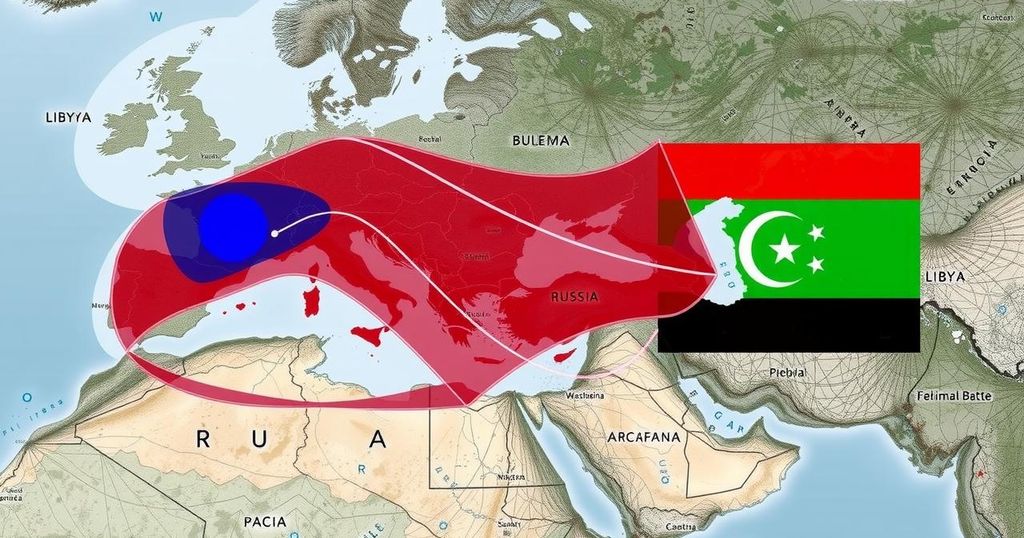World news
AFRICA, AFRICA CORPS, AL, AL - ASSAD, ASIA, BASHA, BASHAR AL - ASSAD, EUROPE/ASIA, GEOPOLITICS, HAYAT TAHRIR AL - SHAM, INTERNATIONAL CRISIS GROUP, LIBYA, MILITARY, NATO, OLEG IGNATOV, RUSSIA, RUSSIAN INVASION OF UKRAINE, SYRIA, TRIPOLI, US PRESIDENTIAL RACE, WAGNER GROUP, WAR
Fatima Alavi
0 Comments
Russia’s Strategic Considerations: Potential Military Shift from Syria to Libya
Analysts are contemplating whether Russia will relocate military forces from Syria to Libya, which carries significant geopolitical implications. While Russia’s loss in Syria may not be materially damaging, retaining regional influence in North Africa is critical. Given Libya’s unstable political environment, an increase in Russian military presence could bolster local factions and challenge NATO’s interests. The situation in Libya continues to develop, necessitating close monitoring by international observers.
Recent analyses speculate on Russia’s potential shift of military resources from Syria to Libya, emphasizing the geopolitical implications for Moscow, Tripoli, and beyond. While the Kremlin’s loss in Syria would have minimal material impact, the retention of a strategic presence in the Mediterranean and Africa remains paramount. This development poses significant questions regarding the stability of Libya, currently embroiled in political strife, and the potential ramifications of a heightened Russian military footprint within the region, especially in relation to NATO’s interests. Russia has solidified its involvement in Syria by establishing a military infrastructure crucial for extending its influence across North Africa, capitalizing on the diminishing Western presence in the continent amidst the rising authorities of China and Turkey.
The presence of Russian military contractors, notably the Africa Corps, underlines Moscow’s ambition to expand its influence throughout Africa, particularly following significant shifts in regional governance. The ongoing power struggle in Libya, underscored by competing governments, complicates the situation, as the introduction of Russian forces may grant undue leverage to the eastern factions led by Khalifa Haftar, undermining potential negotiations facilitated by the United Nations. Despite attempts by Western powers to engage with Haftar, concerns arise regarding his reliability as an ally when Russian interests may come into conflict with Western objectives.
Russia’s military engagement in Syria has evolved drastically since its initiation, leading to significant infrastructural developments critical for its Mediterranean strategy. With Syria now reportedly slipping from Moscow’s control, analysts underscore Libya as a suitable alternative for Russia’s operations. The strategic desire to maintain influence over North Africa and counterbalance Western powers lies at the heart of this potential military transition. Moreover, Libya’s complex political landscape complicates any prospective military redeployment, as competing factions vie for dominance while international stakeholders navigate the implications of further Russian entrenchment.
In conclusion, the discourse surrounding Russia’s potential military redeployment from Syria to Libya reflects broader geopolitical maneuverings with significant implications for the stability of both nations. As Russia seeks to solidify its influence in North Africa amidst the contest for power among nations, the ramifications for NATO and regional dynamics are profound and warrant careful observation. The continued volatility within Libya only serves to heighten concerns regarding a pronounced Russian presence, which could alter the balance of power against Western interests.
Original Source: www.aljazeera.com




Post Comment